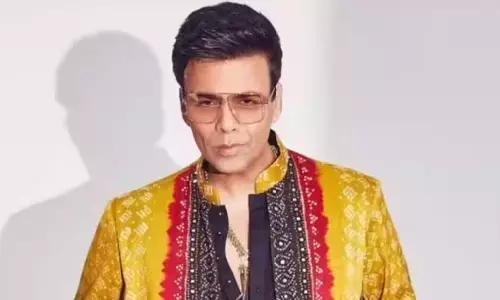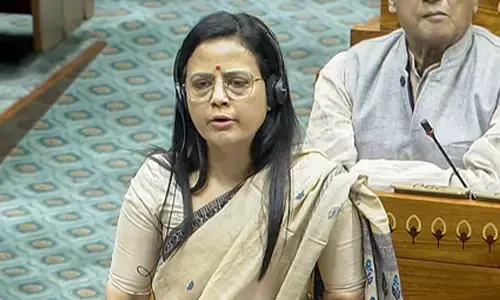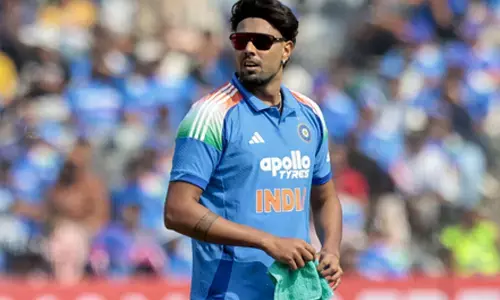Judicial commission for tender finalisation!

Apparently in a bid to project himself as working in a transparent mode, Andhra Pradesh Chief Minister YS Jagan Mohan Reddy has announced that a judicial commission would be appointed with a High Court judge to finalise tenders for undertaking government contract works.
Apparently in a bid to project himself as working in a transparent mode, Andhra Pradesh Chief Minister YS Jagan Mohan Reddy has announced that a judicial commission would be appointed with a High Court judge to finalise tenders for undertaking government contract works.
Noticeably, he mentioned that it would be a judicial commission and not a judicial committee. A judicial commission consists of only one member and the committee would be more than one member.
The Chief Minister also averred that the judicial commission headed by a High Court judge would scrutinise the tender process and the government would follow its suggestions.
The Chief Minister also dwelt upon the process of reverse tender, referring to the scrutiny of the contracts which are already awarded and if found any anomalies in those contracts, the tenders would be reversed. The moot point here is whether the government is binding over the suggestions of the judicial commission or not.
The judicial commission is only a recommendatory body and the government need not be binding over its suggestions.
One has to wait and see if the government would make it mandatory in terms of reference while appointing the panel to follow the suggestions of the judicial commission. Then it would become justiciable. However, it is doubtful that the government would make it mandatory.
The possibility of appointing a sitting judge to the commission is outrightly ruled out by AP Bar Council member and senior advocate Chalasani Ajay Kumar. There are about eleven judges in the AP High Court as against the sanctioned strength of 37 judges.
More than 500 judge posts are vacant in various high courts throughout the country. Several hundreds of thousands of cases are pending in the High Court and the judges have no time to hear even the pressing matters like bail or anticipatory bail.
The High Court registry expresses its inability to list the important cases like bail or anticipatory bail due to the time constraint to take up such cases. The Chief Minister may choose to appoint a retired judge to head the judicial commission.
Looking from a different angle, the competency of legal luminaries in deciding the technical matters in awarding the contracts is questionable and likely to turn controversial.
Moreover, the Chief Minister in an almost threatening tone stated that criminal cases would be filed against the media whether it is print or electronic, which writes stories against the decision of the judicial commission.
It makes one wonder whether the Chief Minister is trying to intimidate the Fourth Estate from writing against the government. One wonders whether the Chief Minister implies that nobody should question the government.
In fact, no decision of any judicial court is above questioning. Even the Supreme Court hears the petitions to reverse the earlier judgments.
The judicial commission proposal appears to be an attention diversion tactic to escape from implementing the impossible promises the Chief Minister made during the electioneering, avers Ch Divakar Babu, principal of Siddhartha Law College.
The suggestions or recommendations of the judicial commission are not binding on the government. They may be taken or outrightly ignored.














